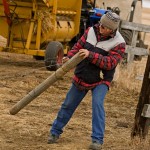CNS Canada — More people have applied for jobs in Canada’s agribusiness sector as of late, according to an industry researcher, but some agricultural sectors still face a critical labour shortage. “People have said that they have received more resumes this year than in previous years,” said Debra Hauer, project manager at the Canadian Agricultural







